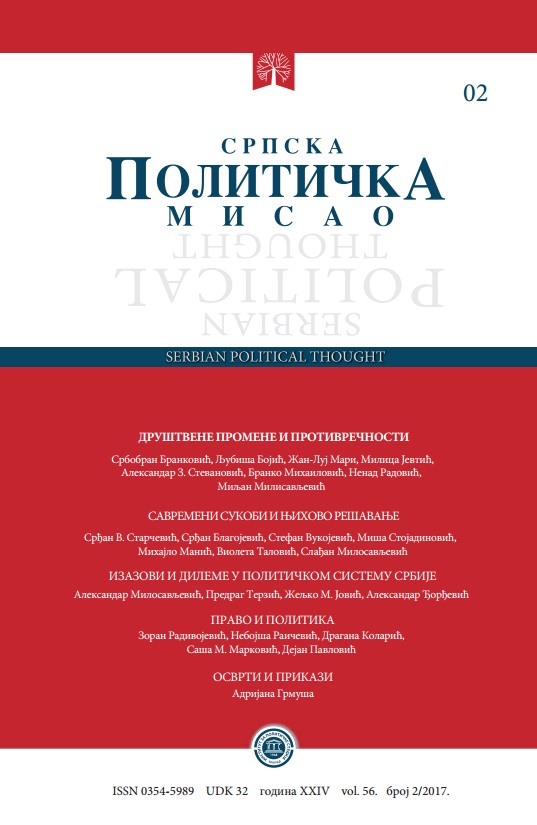Етички изазови у условима глобализације
Ethical Challenges in the Conditions of Globalization
Author(s): Branko Mihailović, Nenad RadovićSubject(s): Supranational / Global Economy, Business Economy / Management, Ethics / Practical Philosophy
Published by: Институт за политичке студије
Keywords: ethics; globalization; sustainable development; ethical dilemmas; internationalization; business ethics; multinational corporations
Summary/Abstract: The significance of this work is multiplied by the fact that the emphasis on ethics in the contemporary society and economy, but also its actuality. In fact, ethics is a very current topic, a debate that question it attracted a lot of attention of various stakeholders. Consumers like you are more demanding in relation to the company, and also the media, as well as to constantly keep their attention on the state and corporate abuses and failures of all other species. At the same time, it seems, the companies increasingly recognize that something is characterized as ethical might actually be good for business. A survey of ethical challenges in terms of globalization suggests that ethical issues and concerns with which we face today are no longer associated with the limited framework of national or regional scene. These issues gain a global dimension and thus require global solutions. It is necessary to devise an ethical regulations covering the relevant aspects of globalization and international business and thereby consistent application. Consequently, states should adopt and implement such rules and regulations, because it is the most effective means to protect their citizens, national interests and the global environment from the dangers of free interpretation of ethics by international corporations. As business becomes increasingly less territorially fixed by corporations increasingly participating in international markets and thus presently confronted with new and different, sometimes even contradictory ethical requirements. Moral values, which are taken for granted in the domestic markets, they must take into consideration the moment when corporations enter into foreign markets. Consequently, if a more detailed analysis of the global activities are readily identifiable multinational corporations as the dominant actors on the global level. Accordingly suggest the radical changes in the formulation of business objectives. This is a new conceptual framework for the assessment of not only business activities in particular, but also industrial and social development in general. The concept of sustainability refers to the long-term maintenance of the system in accordance with the environment, economic and social development. The introduction of social thinking within the area of sustainability was marked by a significant shift in the interpretation of this concept. The key issue in the social perspective of sustainability is one that regards social justice. Global communications, global products and global financial systems and capital markets are only the most conspicuous examples deterritorialisation in the world economy. There are many other areas in which globalization in this sense is a significant social, economic and political process. Consequently, globalization has important implications for ethics in society and business. In order to achieve sustainability in the previously defined areas, it may be expecting too much nowadays. In fact, it is the product, company or industry that can confidently claim to be sustainable in every sense of the word. However, with the concept of sustainable development is widely promoted state governments, businesses, nongovernmental organizations and the academic community, which is obviously important to understand the full implications and assess the application of ethics at least according to the potential contribution to sustainability.
Journal: Српска политичка мисао
- Issue Year: 2017
- Issue No: 2
- Page Range: 85-100
- Page Count: 16
- Language: Serbian

